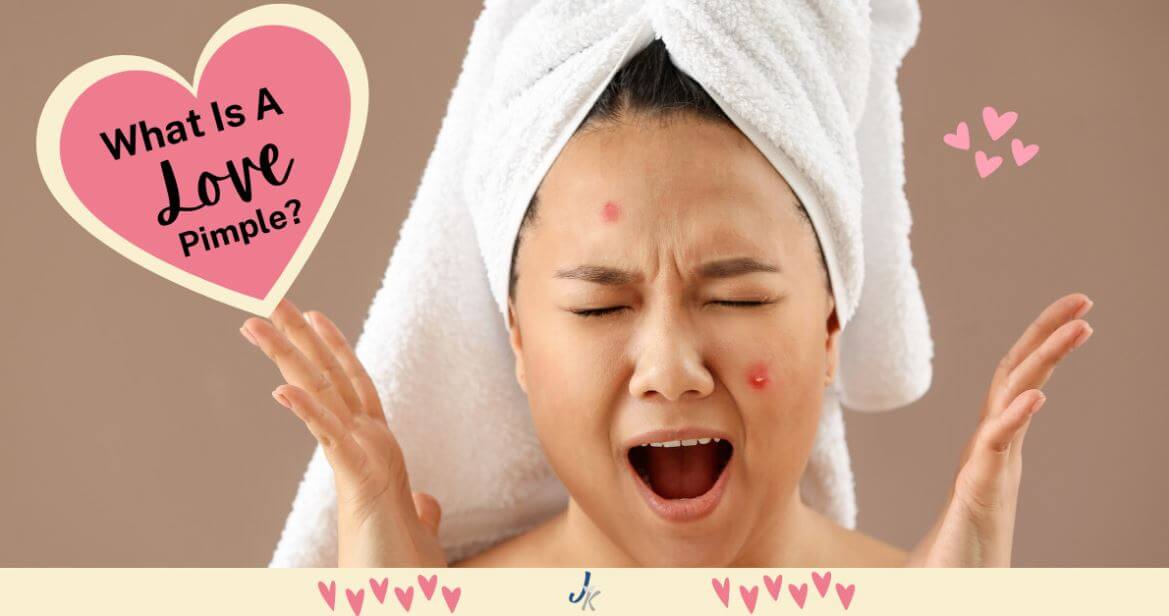Love pimples, also known as crush pimples, are a common skin condition that can appear on the face or body shortly after kissing or engaging in other intimate activities with someone. While there is no scientific evidence to support the existence of love pimples, many people believe that they are caused by the exchange of hormones or other bodily fluids during kissing or intimacy. However, it is more likely that love pimples are simply caused by the increased friction and pressure on the skin during these activities.
What Is A Love Pimple?
A love pimple is a colloquial term for a pimple that appears on the face or body shortly after kissing or engaging in other intimate activities with someone. There is no scientific evidence to support the existence of love pimples, and they are likely caused by the same factors as any other pimple, such as clogged pores, excess oil production, and bacteria.
Some people in South Africa believe that love pimples are caused by the exchange of hormones or other bodily fluids during kissing or intimacy. However, there is no evidence to support this claim. It is more likely that love pimples are simply caused by the increased friction and pressure on the skin during these activities.
Love pimples can be characterized by a variety of features, including:
- Redness
- Swelling
- Tenderness
- Pus-filled head
In most cases, love pimples are small and go away on their own within a few days. However, some love pimples can be large, painful, and persistent. In these cases, it may be necessary to see a dermatologist for treatment.
Causes Of Love Pimples
The exact cause of love pimples is unknown. However, there are a number of factors that may contribute to their development, including:
- Friction and pressure: Kissing and other intimate activities can increase the friction and pressure on the skin. This can lead to inflammation and clogged pores, which can trigger the development of a pimple.
- Bacteria: The skin is home to a variety of bacteria, some of which can cause acne. Kissing or engaging in other intimate activities can transfer bacteria from one person to another. This can increase the risk of developing a pimple, especially if the bacteria are introduced into a clogged pore.
- Hormones: Hormones can play a role in the development of acne. Kissing or engaging in other intimate activities can lead to an increase in hormone levels. This can trigger the development of a pimple, especially if the person is already prone to acne.
Treating And Preventing Love Pimples
There is no specific treatment for love pimples in South Africa. However, you can help to prevent and treat them by following the same tips for preventing and treating other pimples:
- Wash your face twice a day with a gentle cleanser.
- Use an oil-free moisturizer.
- Avoid touching your face throughout the day.
- Remove makeup and sunscreen before bed.
- Exfoliate your skin regularly to remove dead skin cells.
- Apply a benzoyl peroxide or salicylic acid cream to the affected area.
- See a dermatologist if your pimples are severe or persistent.
If you are concerned about a love pimple, there is no need to worry. It is likely to go away on its own within a few days. However, if the pimple is large, painful, or does not go away after a week, you should see a dermatologist.
Love Pimple FAQs
Here are some FAQs about love pimples:
Q: What causes love pimples?
A: Love pimples are likely caused by the same factors as any other pimple, such as clogged pores, excess oil production, and bacteria. However, some people believe that love pimples may also be caused by the exchange of hormones or other bodily fluids during kissing or intimacy. There is no scientific evidence to support this claim, but it is possible that these factors could contribute to the development of a pimple.
Q: Can I prevent love pimples?
A: There is no guaranteed way to prevent love pimples, but there are some things you can do to reduce your risk, such as:
- Keeping your face clean and oil-free
- Avoiding touching your face throughout the day
- Removing makeup and sunscreen before bed
- Exfoliating your skin regularly to remove dead skin cells
- Avoiding kissing someone who has pimples
Q: How do I treat love pimples?
A: Most love pimples go away on their own within a few days. However, if you have a large, painful, or persistent pimple, you can try treating it with the following methods:
- Applying a benzoyl peroxide or salicylic acid cream to the affected area
- Using a warm compress to reduce inflammation
- Seeing a dermatologist for prescription medication
Q: Are love pimples contagious?
A: Love pimples are not contagious. However, the bacteria that can cause pimples can be spread through contact with the affected area. This is why it is important to avoid touching your face throughout the day and to wash your hands thoroughly after touching a pimple.
Q: Can love pimples leave scars?
A: It is possible for love pimples to leave scars, but this is more likely to happen if you pick or squeeze the pimple. To reduce your risk of scarring, avoid touching your face and let the pimple heal on its own. If you have a pimple that is large or painful, see a dermatologist for treatment.
Conclusion
Love pimples are a common skin condition that can be caused by a variety of factors, including friction, bacteria, and hormones. While there is no scientific evidence to support the claim that love pimples are caused by kissing, it is possible that this activity could contribute to their development.
Overall, love pimples are a harmless skin condition that typically goes away on its own within a few days. However, if you have any concerns about a love pimple, you should see a dermatologist for advice and treatment.
Image Courtesy: withjeankelly
